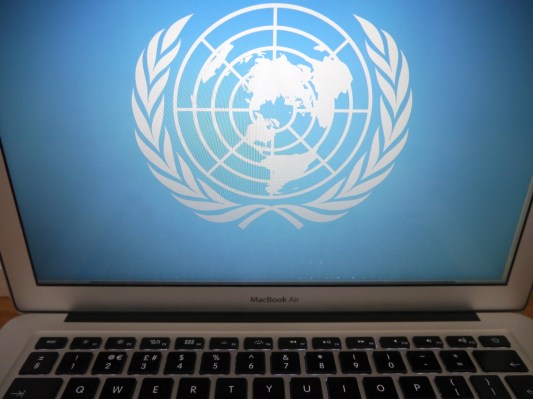A vote today by the United Nations Human Rights Council (UNHRC) has agreed to affirm an expanded resolution on online rights.
Russia and China had tabled several amendments to the text but these were rejected by the sponsor countries who argued they were an attempt to dilute its focus.
The resolution, with the stated aim of bolstering “the promotion, protection and enjoyment of human rights on the Internet” was submitted to the UN council by Brazil, Nigeria, Sweden, Tunisia, Turkey and the US. Three amendments proposed by China and Russia were rejected, another was withdrawn.
It’s not the first such resolution on online rights adopted by the UNHRC, following two previous HRC resolutions adopted by consensus in June 2012 and June 2014. But the latest resolution UNHCR apparently goes further than the prior consensus, with additional focus on Internet censorship — emphasizing the importance of an accessible and open Internet to the achievement of development goals, and calling for accountability for violence, detentions, harassment and other violations against people for expressing themselves online.
The resolution also “condemns unequivocally” measures to block or disrupt access to online information.
Which, it must be said, does make you wonder how Turkey’s name is among the list of submitting countries… given multiple reports of Internet services being blocked in the country in recent years.
And while on the face of it you would expect China and Russia to oppose moves to condemn Internet censorship, given both nations exercise considerable and growing control over web usage in their respective nations, Russia’s representative on the council Alexey Golytyaev sought to shift focus onto online privacy rights during today’s meeting of the Council — warning of an “imbalance” in the resolution text and urging that more attention be paid to safeguarding privacy rights online.
“We witness an increasing number of violations of [the] right [to privacy] committed both by State and non-state actors. Recent revelations by courageous whistleblower Edward Snowden, reports of the special rapporteur on the right to privacy as well as a number of investigations have clearly shown the scale of such violations,” he said, pointing to rising use of unlawful wiretaps, hacking of comms devices and the sifting of “major data streams without authorization”.
Aka, activities that the U.S. Government has been shown to indulge in via its mass surveillance program…
“In many cases these violations are committed against foreign citizens in extraterritorial way,” Golytyaev added. “These activities not only violate human rights, they put at risk the very foundation of civil liberties, freedom of opinion and expression, freedom of thought and conscience.”
So basically this is Russia arguing the U.S. is being hypocritical by seeking, via the UN, to censure speech rights on the Internet when it uses the same Internet infrastructure to perforate privacy rights en masse.
In a later contribution Golytyaev also voiced concern about attempts by certain unnamed states to push an agenda seeking to maintain a “hierarchy with respect to their role on the Internet”.
Ah geopolitics!
The extra kicker here of course is that Russia’s lower house of parliament recently passed an anti-terror law that critics — including, yes, courageous whistleblower Edward Snowden — have warned will in fact hammer online privacy rights in Russia. So errr…
The new privacy-perforating law, when law it becomes, will oblige Russian telephone and Internet providers to store records of all comms for six months and all metadata for three years. It also includes requirements that these companies help intelligence agencies decode encrypted messaging services.
So yes, this is very much a game of pots calling kettles black — played out within the diplomatic horseshoe of the UNHRC.
A Chinese intervention was rather less camouflaged in its intentions, with the country representative requesting in one of the (subsequently) rejected amendments that the phrase in the resolution text “a comprehensive human rights-based approach” be changed to “a comprehensive and integrated approach”.
So, in other words, that a reference to Human Rights be deleted.
A suggestion that was obviously rejected by the sponsor countries. It’s not called the Human Rights Council for nothing.
Defending the resolution against the charge that it ignores the importance of privacy rights online, the Nigerian rep argued on behalf of the sponsor countries that the text, as drafted, already includes reference to and support for privacy rights.
He further noted that privacy has been specifically dealt with in other UN resolutions — for example, the UN General Assembly adopted a resolution on the right to privacy in the digital age in December 2013 — reiterating a desire not to dilute the focus of the resolution in upholding human rights online.
And although the Russia rep warned of the risk of racism and extremist views being spread online, the country did subsequently join the consensus on the resolution — even after its amendments were rejected.
Despite all this diplomatic action, the adoption of an online human rights resolution by the UNHRC doesn’t really change anything in practical terms, beyond adding to the geopolitical points scoring game — where the Internet is used as a chessboard for power plays.
Not least because the universal declaration of human rights already applies universally. Which means both online and offline. Clue is in the word ‘universal’.
Add to that, the UN is not itself an enforcement body, unless you count trying to shame countries into changing their ways as serious teeth. And given that human rights remain a cause for concern in many of the UN’s own member states it seems a pretty safe bet to expect the state of human rights online to continue to reflect the mixed bag state of human rights offline.
